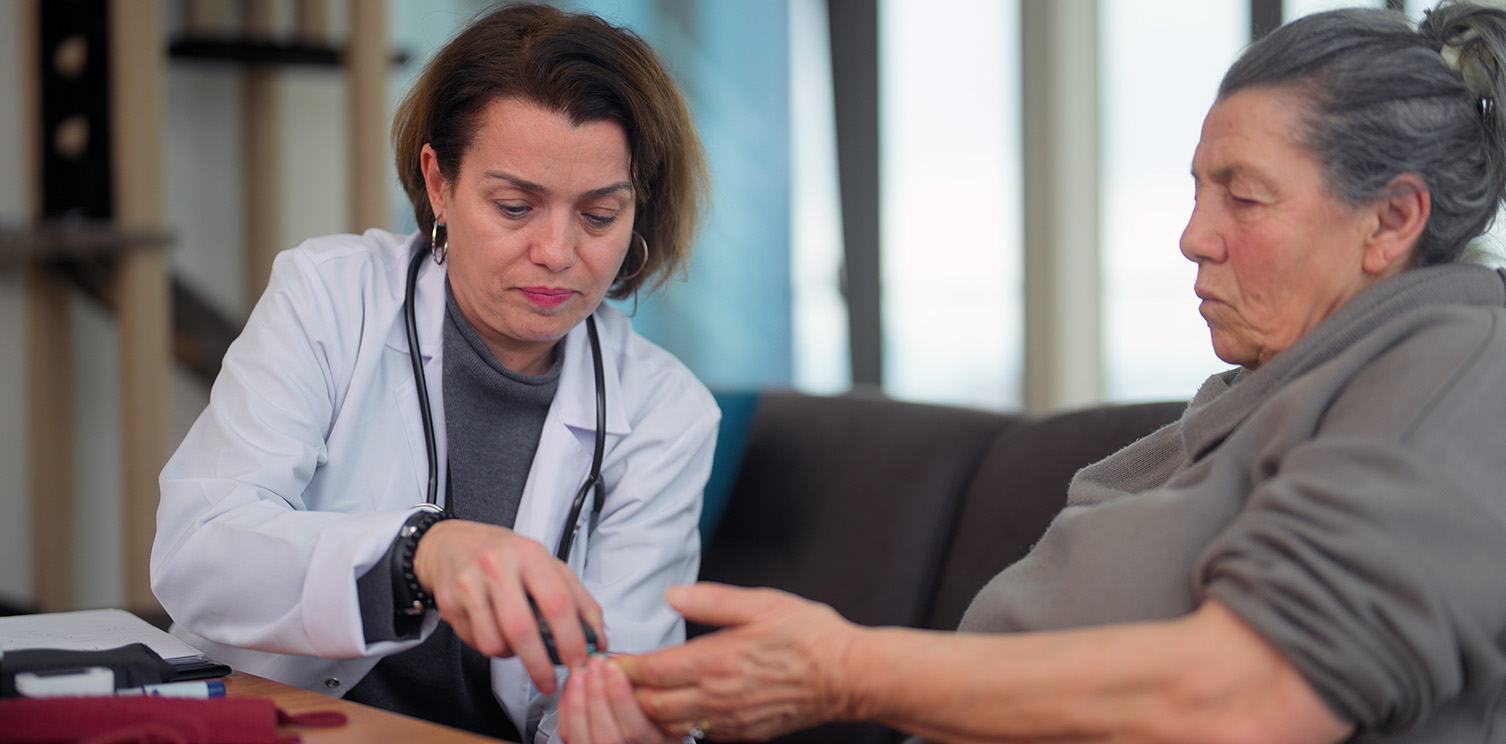Lower Your Chances of Being Readmitted to the Hospital
If you’re discharged from the hospital after an injury or illness, you’re glad to go home and want to stay there. Follow these tips to keep yourself from going back to the hospital.

Going Back to the Hospital
The New England Journal of Medicine says it’s common for older adults to be readmitted to the hospital. They’ve found that 20 percent of older adults have to go back to a hospital within a month of first being discharged.
If you have to return to the hospital, it can mean you have more severe health issues.
Some of the more common reasons and conditions that cause return stays are:
- Falls
- Congestive heart failure
- Diabetes
- Pneumonia
- Chronic obstructive pulmonary disease (COPD)
- Not following doctor’s orders
- Not taking your medicines as prescribed
- Not keeping follow-up appointments
But you may be able to keep yourself from heading back to the hospital. We’ve put together some steps you can take.
Avoid Being Readmitted
Follow these tips when you’re first discharged from the hospital:
Be sure you understand your condition:
- Have your doctor explain your condition in simple language. Not medical terms that you may not understand.
- Ask about any danger signs and how to recognize them. Be sure to have a plan if any danger signs appear. Before you’re discharged, know who you’ll call at any times of day.
- Have a caregiver with you when you get this information.
- Keep your discharge instructions on hand when you go home.
- Don’t be in such a hurry to leave that you don’t ask questions when something in the discharge information is unclear.
Manage your medicines. Patient medicine errors are another major reason for readmissions. Ask a caregiver for help to sort through your prescriptions, if you’re taking many medicines at the same time:
- Make a list of any new medicines you were prescribed in the hospital. Include as much detail as you can, like:
- What the medicine is for
- How often you should take it
- Any food or supplements you should avoid when taking the medicine
- Any possible side effects
- Compare them to old medicines you were taking when you were first admitted.
- Make a list of any new medicines you were prescribed in the hospital. Include as much detail as you can, like:
- If your doctor asks you to see a geriatric care manager, they can help. This could be part of your discharge plan, with services offered you can use at home.
- Don’t tell your doctor at the hospital that you’re fine if you’re not, just to get a quicker discharge. Ignoring symptoms can mean more severe problems.
- Keep follow-up appointments. Missing them is one of the biggest reasons for readmission. Call on caregivers or friends for a ride, and to take notes from the doctor.
- Make sure, through talking to your doctor or pharmacist, your medicines don’t cause a bad reaction.
- Follow doctor’s orders and take all medicines as prescribed. This is very important if you have congestive heart failure. Not following the prescribed program for this disease is another big reason for hospital readmissions among older adults.
- Watch for changes in appetite, pain or mood. Watch for swelling or redness around wounds, or reactions to medicines. Tell your doctor if you’re having any issues.
Complete Any Recommended Therapy
Your doctor may order therapy as part of your discharge plan. Depending on your condition, here are some examples of therapies that could be included.
- Physical therapy can:
- Help people walk, regain balance and strengthen their body
- Prevent falls, a major cause of hospital readmission
- Lower your blood pressure and heart rate
- Raise oxygen levels in the blood
- Prevent strokes, blood clots and heart attacks
- Occupational therapy helps patients do their day-to-day activities like:
- Bathing
- Making meals and eating
- Getting dressed
- Moving through the home
As patients get stronger in these activities, there’s less chance of getting hurt and better quality of life as their confidence improves.
- Speech therapists can help people who have trouble swallowing, due to aging, brain injury or stroke. They can give cognitive therapy. This trains the mind to deal with the brain processes slowing down.
- Skilled nursing gives wound care to patients with non-healing wounds. Nurses can also give lymphedema therapy for edema (fluid build-up) or swelling in the limbs.
- Nutritionists can help manage diets for illnesses like heart failure or diabetes (another top reason for being readmitted).
Talk to Your Primary Care Doctor
Make an appointment as soon as possible after you're discharged:
- Tell them about your hospital stay, whether it was planned or an emergency.
- Don’t assume the hospital has talked to your doctor.
- Ask for your medical records to be sent to your doctor.
- If you can’t make an appointment in person, ask about telehealth.
Popular Tags:
Previous Article

Hypoglycemia and Diabetes
Next Article

Is It Time for a Mammogram?

Wellness Starts With Us.
Subscribe for updates.
By providing your email address, you agree to receive communications from Braven Health via email.
Fields marked with an asterisk (*) are required.
Thanks for subscribing.
We just sent you an email to confirm your subscription. Please check your spam/junk folder if you can’t find our email.



